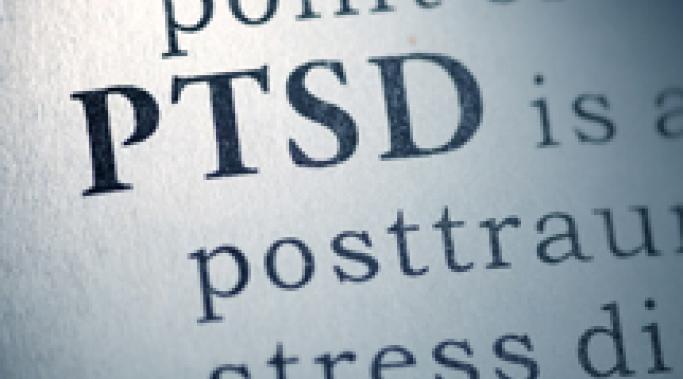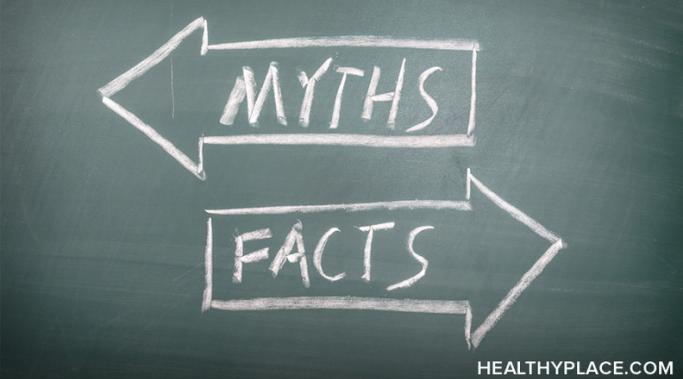Reading has always been a great source of comfort for me, and throughout my healing journey, I've read many books about mental illness and recovery. Some were boring, others just didn't feel aligned with me and my struggle, but some were absolutely amazing. Today I want to highlight those amazing books in the hopes that they can also help guide you through your recovery.
Posttramatic Stress Disorder
Recently, my therapist suggested that I look into how to use emotional freedom technique (EFT) tapping in recovery to see if it was something I might be interested in trying. Now, it's one of my favorite coping techniques and I think it's going to make a big difference in my trauma work. If you haven't heard of EFT tapping, it involves tapping on specific points while speaking phrases of acceptance.
There is a such thing as recovery from posttraumatic stress disorder (PTSD). I have had posttraumatic stress disorder since college. At one point, my symptoms were so severe I was involuntarily committed to the state hospital system. That was eight years ago. Now I'm living on my own and running a small freelance writing business and I recently published a Bible study for sexual assault survivors. My symptoms are usually manageable. Recovery from PTSD is possible, and here are three things that helped me.
Do you know how to recover from an abusive relationship? No one wakes up one day and says, "I think I'll fall in love with someone who abuses me." Most relationships don't become abusive, and most abusive relationships don't become abusive until the relationship is well-established. And lack of violence does not mean lack of abuse (Effects of Emotional Abuse on Adults). Breaking it off is the most dangerous part, but what comes after that? Do victims know how to recover from an abusive relationship?
There are many myths about child sexual abuse but I'm going to focus on three (What Is Child Sexual Abuse?). Three myths about child sexual abuse are that all abused children tell someone, all victims of childhood sexual abuse have physical trauma, and all victims of childhood sexual abuse will grow up to become sex offenders. Let's take a closer look at these child sexual abuse myths.
Fireworks and posttraumatic stress disorder (PTSD) are a problem July 4th. I enlisted in the Army during the height of the Iraq War and was high on the list to go. Long story short, a health condition forced my discharge, but not before I watched people suffer nervous breakdowns and try to piece themselves back together in a hostile psychiatric system (What Is Combat PTSD?). That's one thing that weighs heavily on my heart as the Fourth of July approaches--the number of veterans with posttraumatic stress disorder who will be triggered by fireworks.
We are overdue for a conversation on the need for mental health courts. My friend, Hector Barajas, a U.S. Army veteran, developed posttraumatic stress disorder (PTSD) as a result of his service in the 82nd Airborne during the Gulf War. He was honorably discharged, but his illness was not acknowledged. In the midst of a flashback, he fired a gun. Although no one was hurt, he was arrested, convicted of a felony, then deported for life--he thought his service made him a citizen, but was misinformed and paid a drastic price. Hector and the estimated 30,000 veterans like him who have been deported largely for crimes committed due to PTSD are the poster children for the need for mental health courts.
There are many things some men don't know about rape (Do Women Enjoy Being Raped? Myths About Rape). Presidential candidate Donald Trump recently accepted an endorsement from convicted rapist Mike Tyson, calling him a "tough guy" and saying he was "railroaded." This has not gone over well in Indiana, where Tyson was convicted and served three years in a youth prison before getting early release. It made me think of Mike Tyson, Donald Trump, and what men don't know about rape.
There are three things Sarah Palin needs to know about posttraumatic stress disorder (PTSD). Palin showed her amazing ignorance about PTSD when she blamed President Obama for her son Track's PTSD. Palin said Track's recent domestic violence arrest was due to PTSD, and as horrible as that is, it could be true. However, Palin's "party of personal responsibility" is shifting the blame from themselves (Republicans have blocked every veterans' mental health bill and every mental health bill in general) to people who have nothing to do with it. So here are three things Sarah Palin--and every politician gutting our mental health system--needs to know about PTSD.
There are many myths about posttraumatic stress disorder (PTSD). Due to the stigma of mental illnesses such as PTSD, myths are common. The best way to address a myth is by educating people with the truth. So here are three myths about PTSD.









